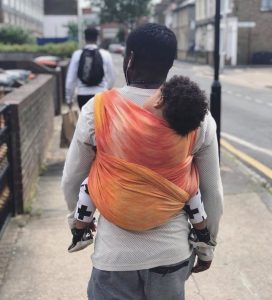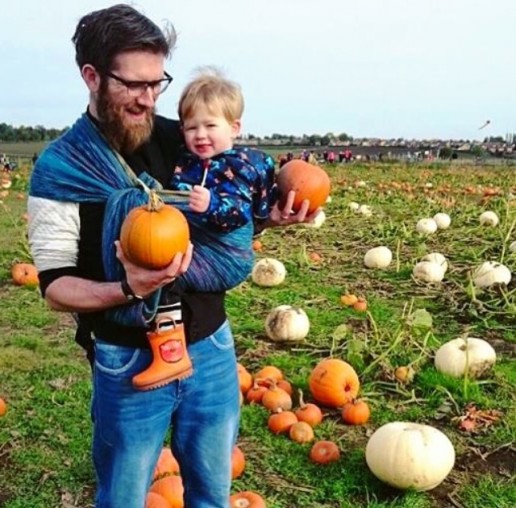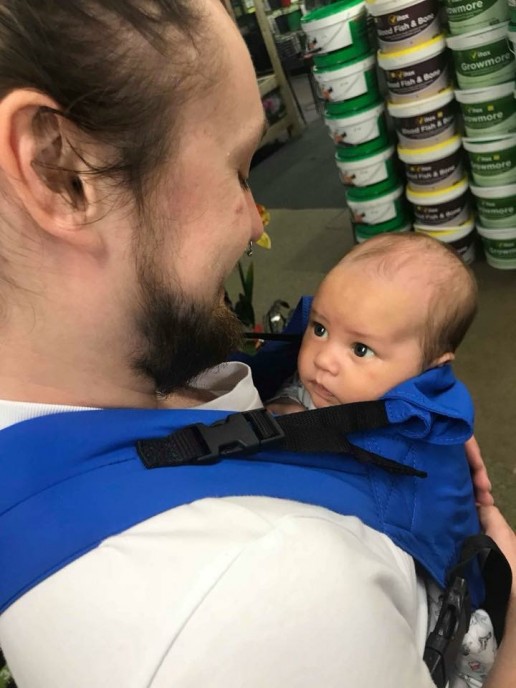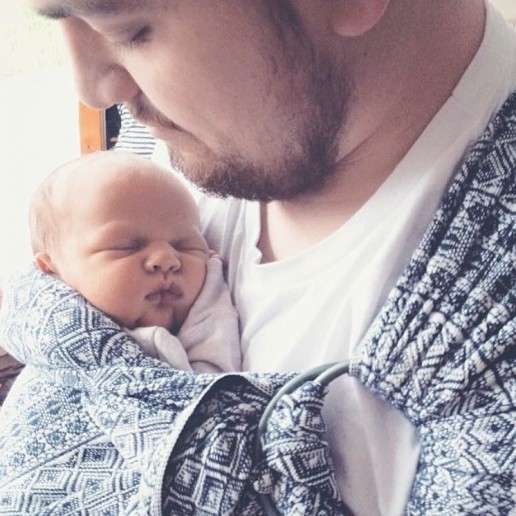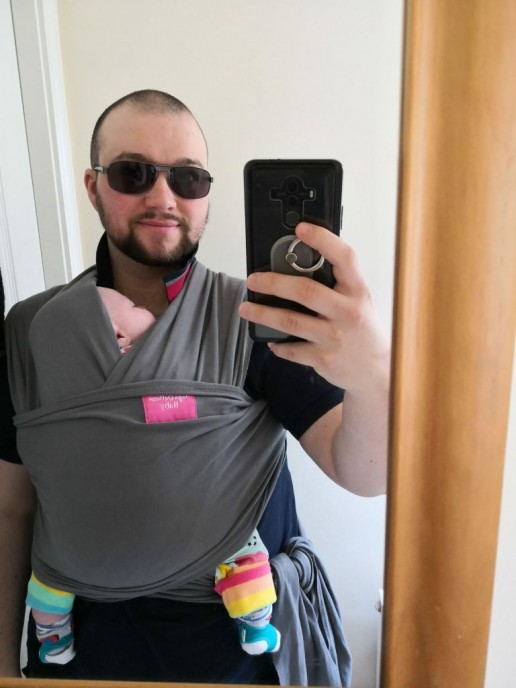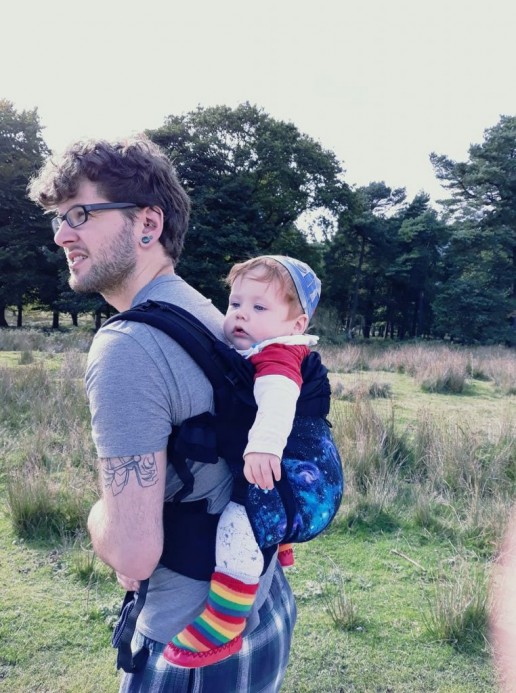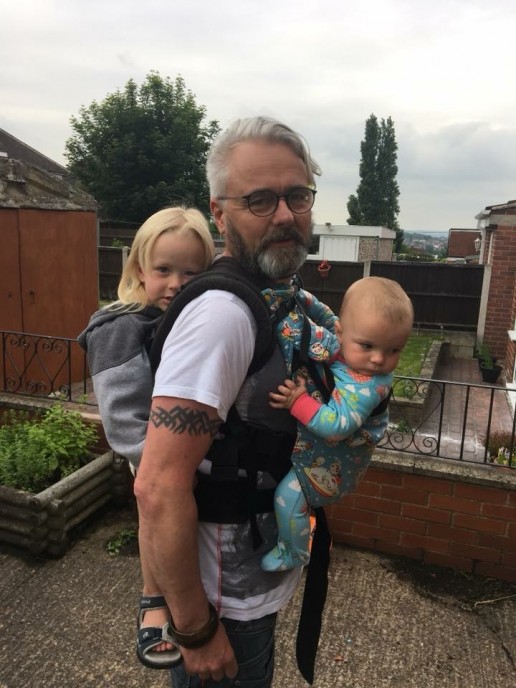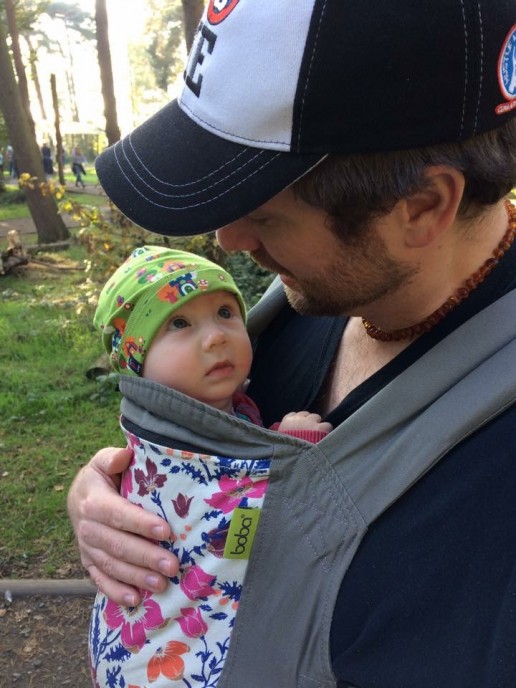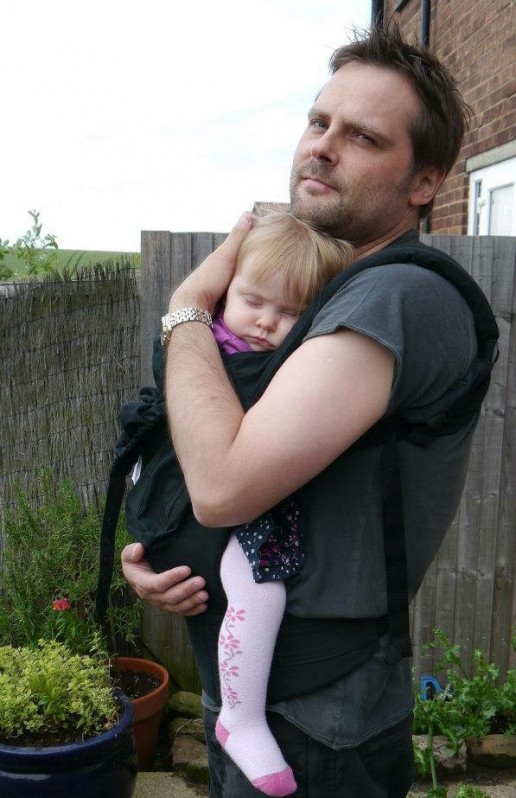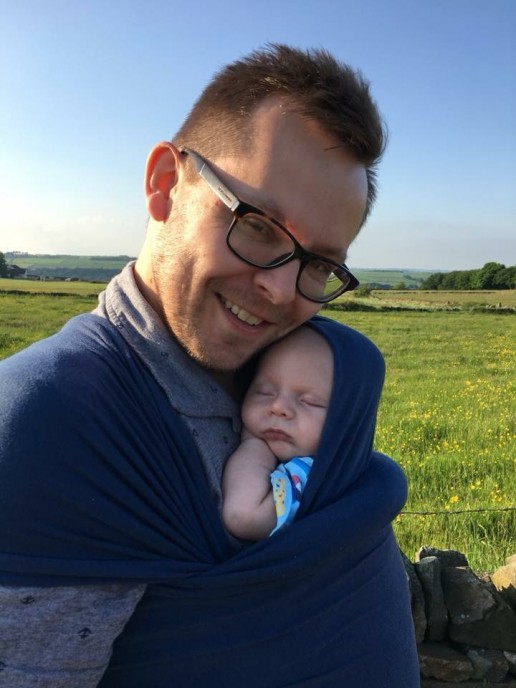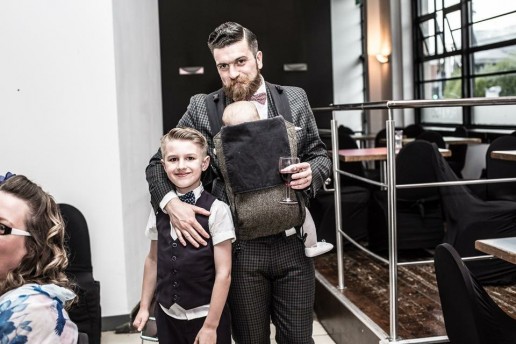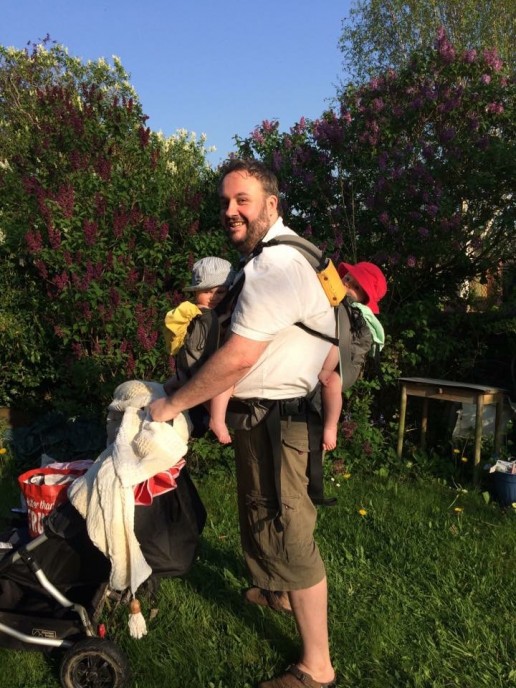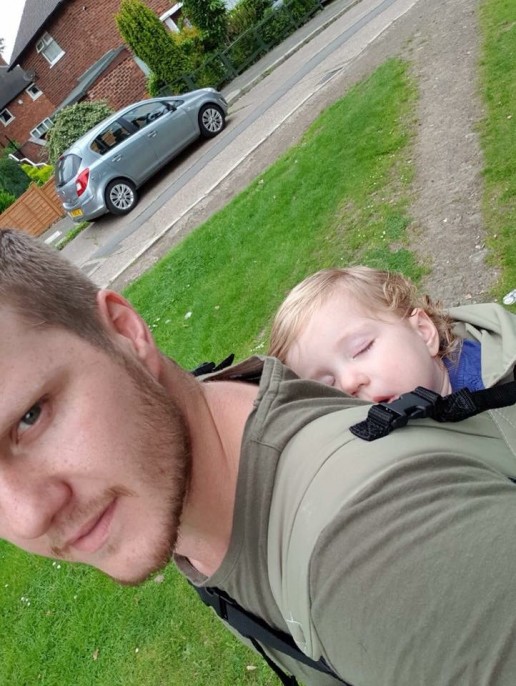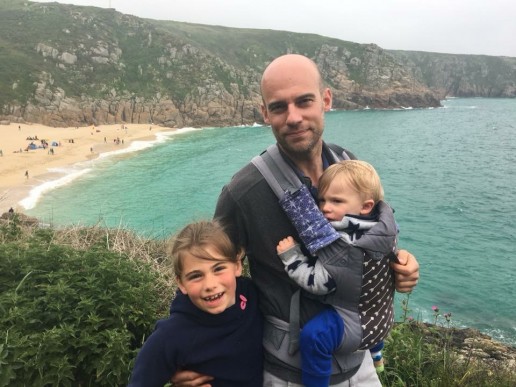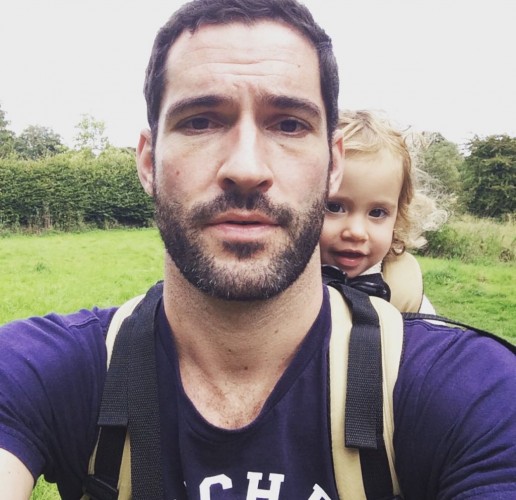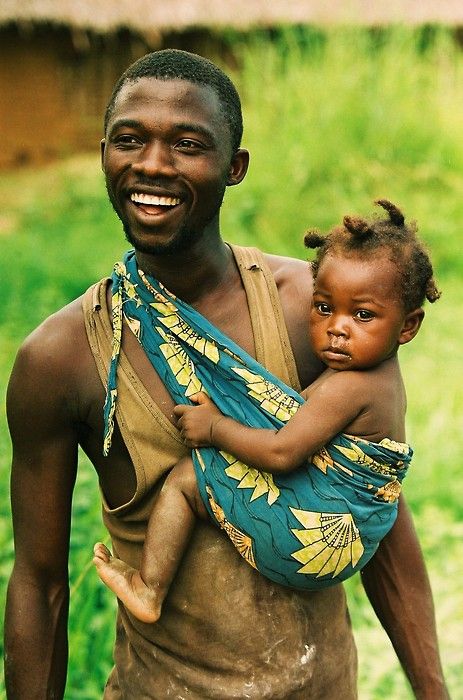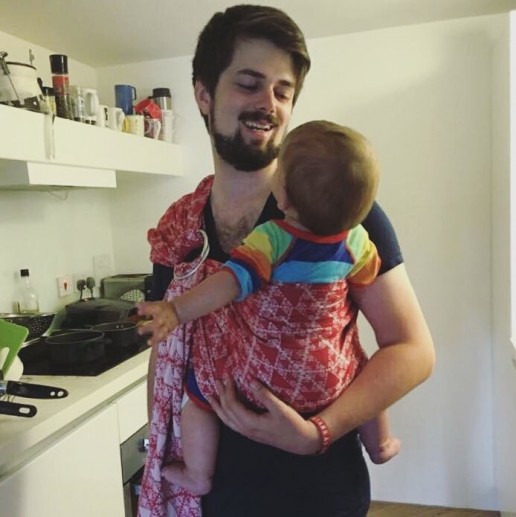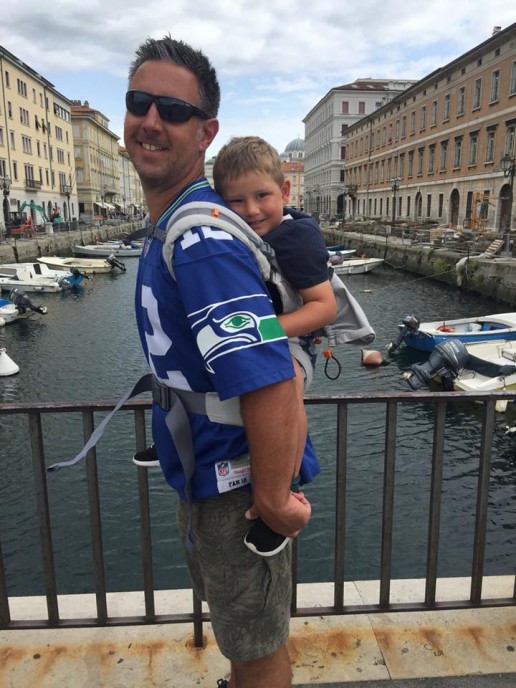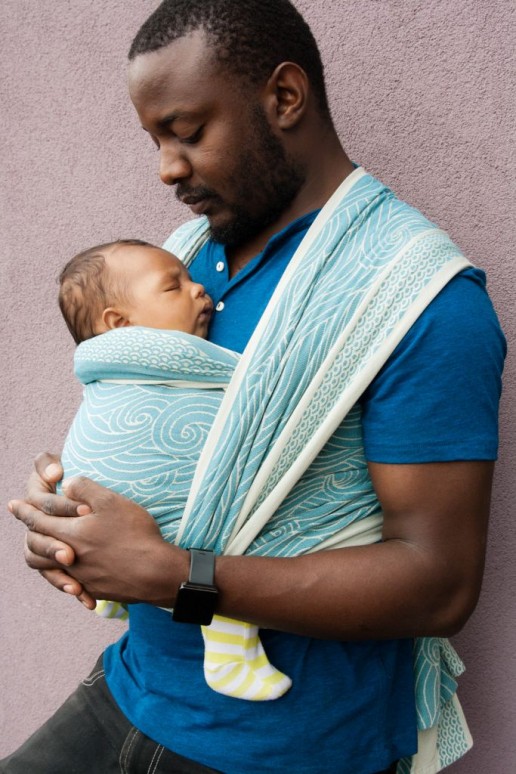Piers Morgan hit the Twitter and news headlines in the UK recently with comments he made on a morning TV programme about babywearing and masculinity. He suggested that men who chose to use baby carriers were somehow "emasculated". This, rightly, provoked a backlash from families eager to prove him wrong. However, the fuss generated by this points to a deeper problem.
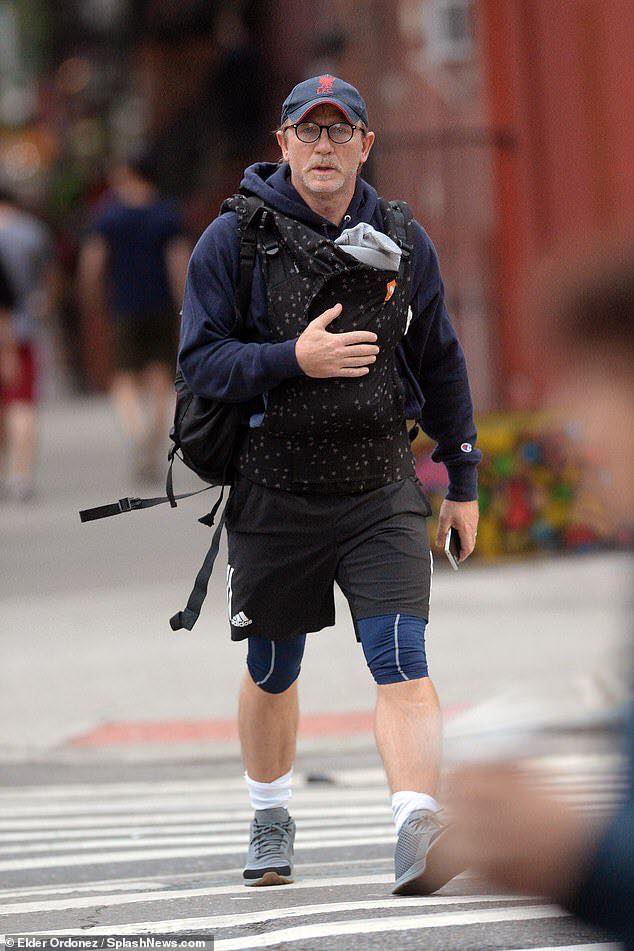
Piers Morgan, is of course, entitled to his own opinion about what entails “masculinity”, and it is true, baby carriers aren’t for everyone. On Good Morning Britain he commented that a father wearing a baby carrier to hold his son was “emasculated” and that he hated “papooses”. He later expressed disappointment to see that Daniel Craig (the current James Bond actor) was using a buckled carrier for his one month old daughter, and went on to ridicule several other men who showed photos of themselves babywearing, including Tom Ellis.
But the whole storm that arose from it all and no doubt died away quickly (by the time you read this) exposed a few problems that I want to discuss.
Firstly, the use of the term “papoose’.
The word “papoose” is an Algonquin (Native American) word for baby or child, originally from the Narragansett tribe. A Papoose Carrier can mean a cradle board type of carrier in the Native American culture. It has been misappropriated to mean a generic structured baby carrier, and is used widely around the world, without recognition of its origins or true meaning. This isn’t right and many find it offensive.
Secondly, the suggestion that fathers who choose to use baby carriers are somehow less masculine than those who don’t.
This is a pretty complex assumption; and has its roots in a culture that associates masculinity with physical power and strength, and sees emotions as weakness. It’s often called “toxic masculinity”. This seems a good definition of this (from the Good Men Project).
“Toxic masculinity is a narrow and repressive description of manhood, designating manhood as defined by violence, sex, status and aggression. It’s the cultural ideal of manliness, where strength is everything while emotions are a weakness; where sex and brutality are yardsticks by which men are measured, while supposedly “feminine” traits – which can range from emotional vulnerability to simply not being hypersexual – are the means by which your status as “man” can be taken away.”
Piers’ Morgan’s statements about fathers using slings as being “unmanly” feeds directly into this culture, and it exposed how common these ideas are and that they still prevail among many groups. How does it help anyone to be mocked for a positive choice they have made?
Many people encouraged Piers; agreeing with him that fathers only wore carriers because their wives and girlfriends told them to (what does that imply about gay dads who choose to babywear? Are women nags to their boyfriends and husbands?). Others said that they wouldn’t be seen dead using slings, and that baby carriers are “modern montrosities”. Such statements and tweets are both incorrect (baby carriers have been around for generations and across the world’s cultures) and also serve to reinforce the idea that being emotionally intelligent or loving towards your family is somehow undesirable. If you want a true status as a “man”, you won’t show this kind of loving interaction to the small people in your life (or play an active shared role in the journey of parenthood). A lot of it may have been jokey, but given that we live in a culture that still seems to take pride in this form of masculinity, it isn’t helpful. New fathers and fathers-to-be who are already anxious about the effect of fatherhood on their lives may have had their stereotypical ideas reinforced; “don’t start thinking you’ll be getting one of those things on me!” “My mates would laugh at me!”
Why does this matter?

“Fathers contribute more than their genes to their children—they also pass along a special set of genetic signals that are crucial to their children’s survival. Fathers’ brains shape their children—and are shaped by them. Fathers’ obesity or depression can sadly have serious consequences for their children.”
Intact families, where dads are involved do better than those who don’t; the impact of fathers on their children is immense (Why Fathers Matter).
“Children do better in 26 different areas when they grow up in intact families.”
We should be doing everything we can to encourage men to be active, loving, emotionally available fathers, as the outcomes for society as a whole are so great.
 Where do slings come into this?
Where do slings come into this?
Piers suggested that he had never said that fathers shouldn’t carry or hold their children; just that they shouldn’t use baby carriers. While I agree that it is mostly the relationships and the contact that matters not the method of carrying, it is a sad statistic that the rates of holding and carrying children are in decline. A study by Baildam etc al in 2000 suggested that by one year of age, the amount of time English babies experienced physical contact with their mother had declined to only 17 minutes in 24hours.
We live in a culture that encourages isolation. “Put that baby down, you’ll spoil it.” “Your child must learn to self soothe, you’re making a rod for your own back.” Indeed, we will all pay the price for this isolationism in the long run.
If we are living with this background, babywearing becomes more and more important, as we know that children need loving, close contact to thrive. Their interactions with their parents build their brains; babies and parents grow and thrive when they are connected, learning how to be together as they go. This is especially key in the first three years.
Isolation and forcing early “independence” does not grow healthy brains and leads to long term physical and mental ill health. If we don’t have the time or the strength to hold our babies as much as their neurobiology and biochemistry need, we will have to use tools to meet that need. Modern life demands a great deal of new parents; to “get back to normal adulthood” (as if parenthood was somehow an aberration or temporary)… and this attitude is hard to counteract. Income has to be earned, meals provided, and a family has to function. A sling can help a parent do what they need to and meet their baby’s basic requirements for relationship at the same time. That’s great!
 What can we do about this?
What can we do about this?
A few of us shared the comments from Piers, inviting responses from babywearing dads to counteract this in a positive way, trying to turn the conversation in the direction of empowerment and information, to become a celebration of fatherhood. The response was immense; thousands of dads shared images of their children in baby carriers, and how much of a wonderful experience it was for them. Many of us have written blog posts about it. Fathers tell us how their mental health can benefit from babywearing.
Being aware of the problem is half the battle. Absent or uninvolved fathers or those who pass on “toxic” ideas to their children add to the challenges of growing up, creating chronic stress. This leads to long-term health problems.
Focusing on the reasons why fathers need to be engaged, and giving them the tools to do so, are how we challenge stereotypical ideas of masculinity and improve the health of our children.
We should not fall into the trap of belittling or mocking men who still hold these ideas; this will simply reinforce their beliefs. It seems that Piers Morgan had a difficult childhood; he is not the problem and we should not be focusing on him; we should be combating the society we live in and challenging stereotypes that are harmful to men and boys as well as to women and girls.
Carry those children, dads. Be visible! It matters! You’re helping to build a better, kinder world.
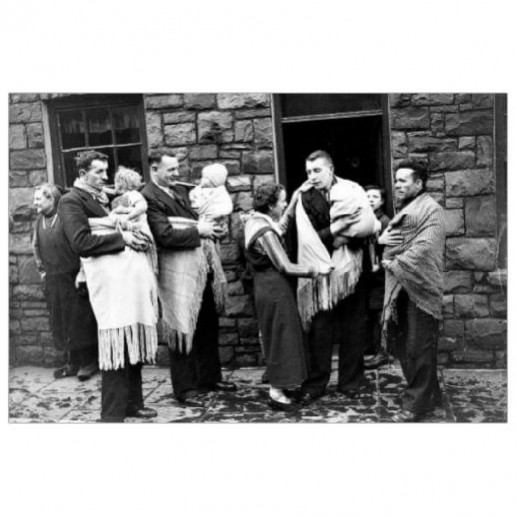
As for the idea that the British Isles don’t have a culture of carrying babies with tools; here are some Welsh grandfathers in the Rhondda Valley in the 1930s learning how to use the traditional cwtch shawl and then putting it into practice.
Apparently some “grandfathers used to be seen carrying the babies in shawls on the seafront in Swansea on Sunday mornings, giving the young couples a chance to sleep in.” (Quote from here).
The Scots do the same.. “Carrying with the plaid.”
Families work best when they do things together.
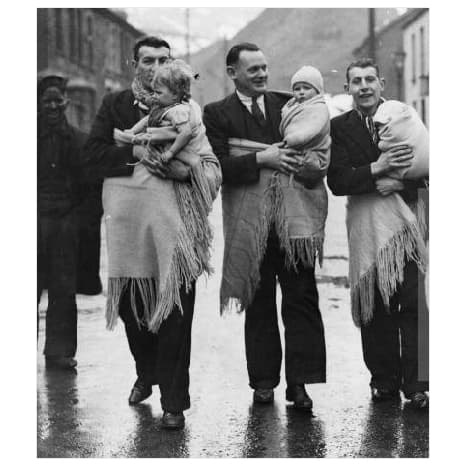

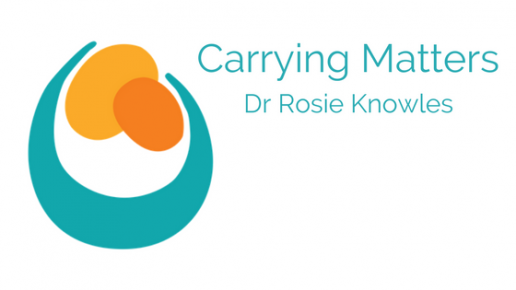
 Where do slings come into this?
Where do slings come into this? What can we do about this?
What can we do about this?